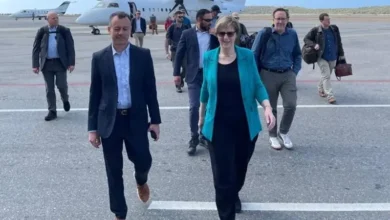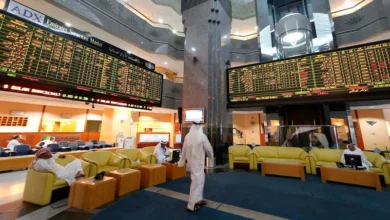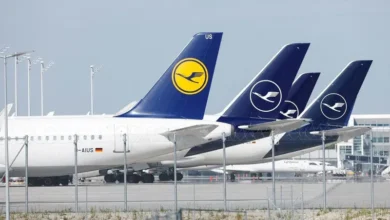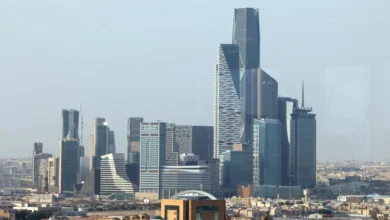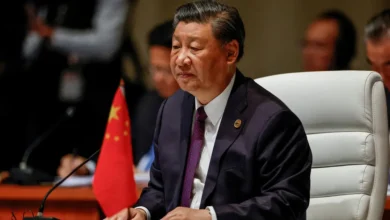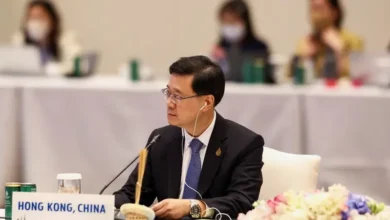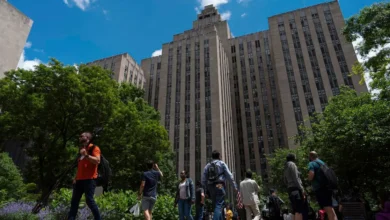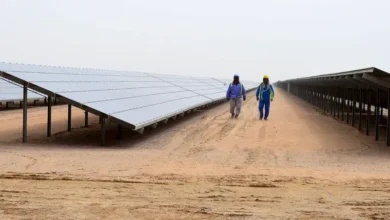Dubai property: Prices to soar in 2025, flooding to have ‘minimal impact’ on market

Dubai’s real estate market continues to outperform global hotspots like New York, London and Hong Kong, with no signs of a slowdown in sight, with experts saying property prices – and rents – in the emirate will continue to climb in 2025, with the recent record rainfall and subsequent flooding having only a “minimal’ impact on the realty market.
Despite economic fluctuations worldwide, experts told Al Arabiya English that property prices in the emirate are projected to climb a further five to seven percent annually in 2024 and 2025, driven by surging demand that far outstrips available supply.

“Historically, Dubai’s property market has shown resilience and continued growth despite occasional fluctuations,” says Aran Lomax, managing partner of TREO homes. “With increasing demand due to an influx of people moving to Dubai and development initiatives from the government, the growth of Dubai’s real estate market doesn’t show any sign of slowing.
“In fact, data from 2023 shows that Dubai ranks first for the most number of homes sold over $10M, overtaking established real estate hotspots such as New York, London, and Hong Kong.”
Floods to have ‘minimal impact on prices’
Zarah Evans, owner and managing partner of Exclusive Links Real Estate Broker, said the recent floods across the UAE – which left some homes submerged and many battling water damage – are unlikely to stem demand for property.
“The recent floods in Dubai may see a drop in interest in some of the communities that bore the worst of the rain, but only in the immediate months that follow,” she told Al Arabiya English. “Dubai is very quick to react positively to challenges, and this was evident immediately after the rains.”

She further said: “The government was announcing upgrades to the drainage system and developers were stepping in and offering residents free repairs on any damage. At times like this, Dubai, as a larger community, pulls together and is resilient, and any prices that have any adjustments will soon bounce back.”
Affordability and opportunity
One of Dubai’s key advantages is the exceptional value it offers buyers compared to other global cities. “In Dubai, you get so much more for so much less,” Lomax notes. “$1 million in Dubai gets you 980 sq.ft., while the same amount gets you only 355 sq.ft. in London, 366 sq.ft. in New York, 409 sq.ft. in Los Angeles, 344 sq.ft. in Singapore, and 462 sq.ft. in Sydney.”
But spacious properties are not the only thing attracting investors and residents alike. Dubai’s strategic location, business-friendly policies, diversity, and safety set it apart. “Nowhere else in the world do you get the lifestyle, diversity, and opportunities that Dubai offers, and enjoy this much safety and convenience,” says Lomax.
Surging population growth fuels demand
With Dubai’s population forecast to hit 5.8 million by 2040, the city will need approximately 54,440 new homes annually to keep pace with demand – and that doesn’t even factor in the tourism growth.
Evans said: “Regardless of the number of launches we have witnessed through 2023 to date, the city’s population is still growing 300 percent faster. Soon, we will see four new mega projects by Emaar, Damac, and Majid Al Futtaim, which will address the unmet demand for villas and townhouses.”
“We must also consider the lapse in launch-to-handover, which is currently affecting the supply of ready homes and, in turn, increasing rental prices,” Evans added.
The numbers paint a vivid picture of the acute housing shortage.

“Even with the influx of new supply in the next three to five years, we are currently facing a severe undersupply of homes,” says Lomax. “If we consider the 2023 population of Dubai with buying power, and with an average household size of four, the housing units required now have a deficit of 190,439 homes.”
She added: “Properties due for handover in the next five years only amount to under 200,000. Demand will continue to grow each year and, based on the numbers, supply will not be able to catch up anytime soon.”
New developments
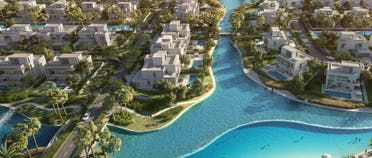
Multiple projects are slated for completion across Dubai in 2024. Damac Hills is extending its community with contemporary 3-7 bedroom villas packed with amenities. Mohammed Bin Rashid Al Maktoum City’s District 11 is launching spacious 3-5 bedroom villas with park views. The Valley by Emaar promises a “charming town” with 3-5 bedroom villas, a beach, park, and sports village amidst the desert landscape.
The Oasis boasts of more than 7,000 units and four golf courses, with 4-5 bedroom villas from $2.2 million. Dubai South’s residential district offers 3-7 bedroom semi-detached villas and mansions. Rukan Community by Continental Investments expects to deliver 1,299 family villas in December.
Jewel of the Creek has unveiled 1,260 new apartments in its creekside development. Aura in Tilal Al Ghaf will hand over 808 resort-style 3-4 bedroom villas in May. In Business Bay, Regalia Residences is set to deliver 900 new apartments from studios to penthouses by December.
Government initiatives drive growth
Dubai’s government has played a pivotal role in the real estate sector’s impressive performance through progressive policies and ambitious infrastructure developments. Recent visa reforms, such as the relaxed requirements for the Golden Visa, have been a boon for buyers.
“Government initiatives, financial transparency, state-of-the-art facilities, and infrastructure are all key factors contributing to the interest in the property market in Dubai,” said Evans. The real estate industry itself is also becoming more mature and transparent and synergizing more with other known markets like Europe, the US, and Australia, except that Dubai doesn’t carry the burden of property taxes.”
“Dubai is a geographic hub for trade and tourism, and so is naturally affected by global economic fluctuations, but the demographics, flourishing economy, and can-do attitude of the city seem to see it continue to come out on top and continue to flourish.”
Visa initiatives are also “fuelling the property market,” says Evans.
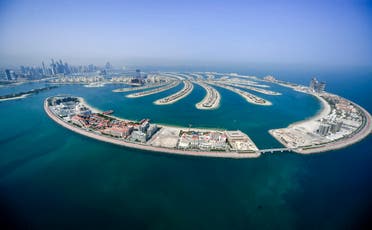
“The recently announced relaxed Golden Visa, in which the UAE has eliminated the minimum down payment requirement, has given yet another boost to buyer interest.”
Being a tax haven is another major draw. “A country free from property taxes certainly makes Dubai one of the most sought-after investment destinations compared to other cities,” Evans notes.
The ongoing expansion of the city’s infrastructure and amenities also drives demand and higher prices.
“Naturally, the demand for properties will continue to increase as we see the city expand its infrastructure and amenities,” said Evans. “The development of new transportation links, entertainment venues, and business opportunities will continue to drive property demands and prices upward.”
Evans added Dubai is not only hitting the property headlines, but is also setting new standards in technology and cutting-edge infrastructure. Dubai never shies away from sharing the city’s vision and shouting out as it continues to introduce ‘the biggest and the best’ which will, in turn, ensure long-term interest and sustainability.”
Emerging Trends: Sustainability, luxury, branded residences
As Dubai’s property market evolves, several key trends are emerging – chief among them a growing focus on sustainability. Lomax sees Dubai embracing eco-friendly development in the coming years.
“The road networks and public transportation routes are being massively overhauled and expanded, which will definitely drive more growth as these areas become more accessible to the population,” Lomax said.
Commenting on Dubai’s expanding green ambitions, Evans said: “Dubai is committed to sustainable urban development, and since the early 2000s, the government has been implementing policies and initiatives promoting environment-friendly construction practices. This has led to us seeing more innovative building technologies, making Dubai a hub for cutting-edge sustainable architecture.”
“This has led to seeing more innovative building technologies, making Dubai a hub for cutting-edge sustainable architecture. With the adoption of the Dubai Green Building Regulations and Specifications in 2010, the city has witnessed a substantial increase in green buildings, boosting competitiveness amongst developers and ensuring longer-term success and viability. Green buildings often command higher rental and resale values than their traditional counterparts, reflecting added returns on investment.”
The COVID-19 pandemic has also shifted consumers’ wants, needs, and demands, said Evans.
“Post-pandemic, we saw a rise in the need for more green spaces and working-from-home facilities. Developers recognized this and responded. We have also seen an abundance of ultra-luxurious housing being released into the market, as demand has been there to respond to higher incomes and the perception of Dubai on a global scale.
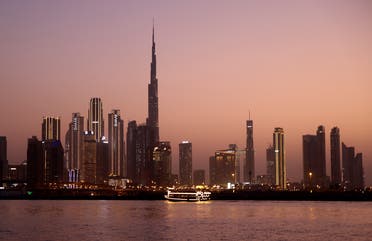
“The trends we are seeing is…homes with smart technology are becoming a must, and we are seeing developers drive their plans forward to include mixed-use projects – combining residential, commercial, retail, and of course, green recreational spaces incorporating health and wellness,” explained Evans.
“We are seeing more crystal blue lagoons being built in the desert offering water views at every opportunity along with extensions to the Dubai beachfront with the relaunch of projects such as Palm Jebel Ali.”
Luxury branded residences are also gaining prominence, with developers partnering with prestigious brands to create exceptional properties.
“Luxury and branded residences are another emerging trend, where developers partner with luxury brands to create exclusive properties. This phenomenon is particularly evident in off-plan property in Dubai where developers like Omniyat, collaborating with esteemed architects such as Zaha Hadid, Foster + Partners, and Gilles & Bossier, create extraordinary living spaces,” Evans said.
Another example is the Armani Beach Residences Palm Jumeirah in Dubai by Tadao Ando and Arada. Still, the list is endless as Dubai is rolling out luxury upon luxury backed by world-class designers and architects, Evans added.
Despite the spotlight on luxury development, affordability remains a pressing need that developers are working to address. “At the other end of the scale, developers also need to cater to the demand of affordable housing options,” notes Evans.
Evolving with the times
Demographic shifts and changing lifestyle preferences in the wake of the pandemic are also influencing demand trends.
Lomax has observed residents increasingly viewing Dubai as a long-term home rather than a temporary posting.
“Until recently, Dubai had a transient nature, and not many residents considered settling in the city for the long term.
However, since the pandemic, there has been a growing sentiment among the public that, for the first time, sees Dubai as a place to call home. This has also been supported by the government’s Golden Visa offering, more business-friendly and freelancer-friendly policies, and lower interest rates that give more residents the option of buying homes where most have only rented,” Lomax explained.
An unstoppable upward trajectory?
As Dubai looks ahead to 2025 and beyond, the market’s meteoric rise appears poised to continue, though potential challenges loom on the distant horizon.
“Looking ahead, trends and phases in the cycle indicate there could be an oversupply, and we could see some prices drop. Currently, we are seeing an average of a new launch every 18 hours, which is meeting investors’ hunger, but this level of activity surely will contribute to a future oversupply at some point,” Evans said, adding that, however, Dubai’s gravity-defying real estate growth story shows no sign of losing steam as yet.
“Dubai continues to attract interest from local and international property investors with attractive returns on investment, progressive policies, and the city’s safe-haven status. Dubai is seeing growth not only in its resident numbers, but also in tourism, as it stands out on the worldwide property landscape and benefits from being a playground for the rich and famous.”
“Capital appreciation and rental returns are high compared to other global markets and although Dubai has seen increased prices and interest rates, we are seeing a transition as tenants are becoming buyers,” she added.
